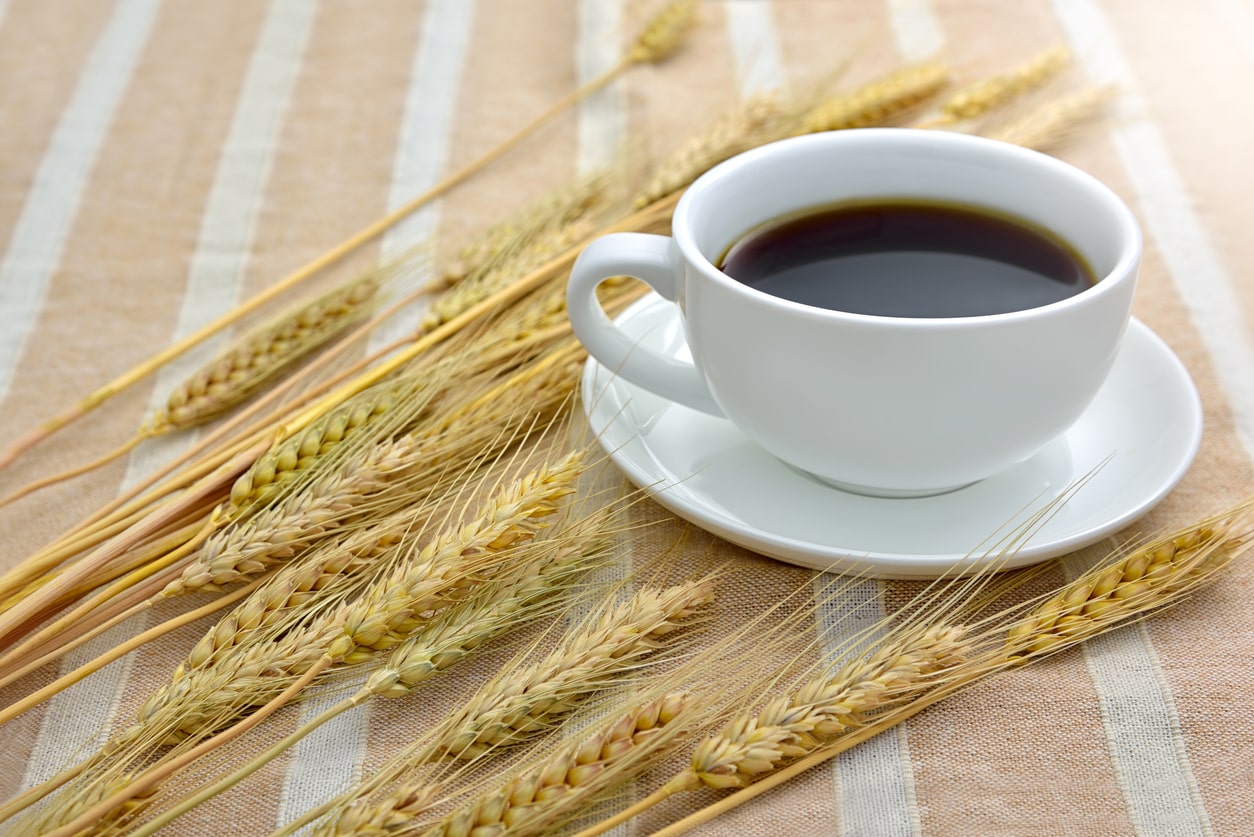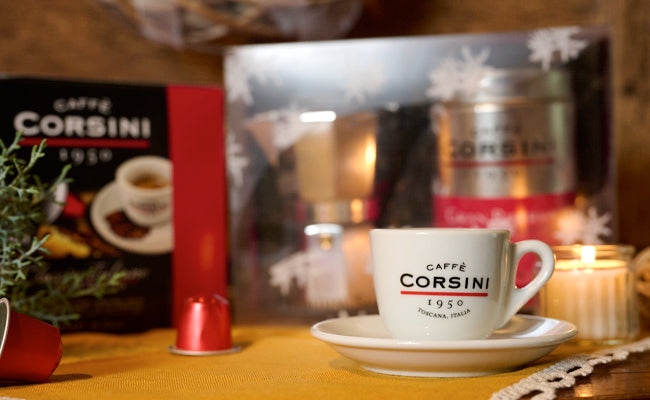
How to recycle coffee capsules and pods
Our tips on where to bin and how to dispose of coffee capsules and pods
How can coffee capsules and pods be recycled? These days, it is truly important to pay attention to the right way of disposal in order to support the well-being of the environment by being as environmentally-friendly as possible.
Recycling coffee capsules correctly prevents them being simply tossed into the recycling bin without the possibility of having them be introduced into the plastic or aluminium recycling system.
It is a different matter when it comes to recycling coffee pods, which often turn out to be biodegradable. But follow along with us at Caffè Corsini with our guide on how to recycle coffee capsules and pods!
How to recycle plastic coffee capsules
Let’s start by finding out how to recycle plastic coffee capsules. Plastic capsules are amongst the most complex to dispose of.
When choosing plastic coffee capsules, it must be emphasised that the lower part is plastic, whilst the upper part is aluminium. Since they are made of mixed materials, they should be thrown in the general waste bin.
However, there is actually a way to recycle plastic coffee capsules as well. The top must be removed with a small knife, thus separating the aluminium from the plastic.
Next, the coffee residues are to be cleaned out of the capsule then finally the coffee goes in with the organic waste whilst the plastic capsule and aluminium lid go into their respective recycling bins.
Further reading: The coffee plant: from cultivation to seed collection.
How to recycle aluminium coffee capsules
How can aluminium coffee capsules be recycled? Plastic capsules are not the only kinds on the market – there are also those made entirely of aluminium, being certainly easier to dispose of. With aluminium capsules, depending on where you live, it is possible to dispose of them in two different ways.
To recycle aluminium coffee capsules in certain municipalities, it is possible to place them in a container to then dispose of them in a bin dedicated exclusively to the disposal of aluminium capsules.
Another solution is to empty the inside of the capsule, thus removing the coffee residue, then disposing of it in the waste bin for aluminium.
The advantage of aluminium capsules lies in the potential the material has, being 100% recyclable and without altering the properties and aroma of the coffee. As an example of aluminium coffee capsules are those compatible with the Nespresso.
Further reading: The history of coffee: origins and types.
How to recycle biodegradable coffee capsules
As the name suggests, biodegradable coffee capsules are the best kinds of all. In this case, these are coffee capsules that, instead of being made of aluminium or a mix of aluminium and plastic, are created from bioplastic.
Bioplastic is a fully-compostable material that can thus be easily recycled by throwing the capsule straight in the bin.
Currently, there are still not many companies making biodegradable coffee capsules, although in the future, the choice may increasingly fall to compostable and biodegradable materials.
One of the great advantages of such materials is that you do not have to go and empty out the residual coffee but can simply toss the entire capsule out.
Further reading: Compostable coffee capsules: what they are, and all their benefits.
How to recycle coffee pods
There are two different types of coffee pods on the market today. Nowadays, there are coffee pods that are made in such a way as to be easily recycled in the municipal waste bin. We’re talking about the pods made entirely of compostable filter paper. Indeed, unlike capsules where the contents can be separated from the container, pods cannot be divided up due to being a single entity.
The second type of pods on the market, rather, contain a percentage of plastics in the filter paper – albeit minimal – and can be disposed of in two ways: either by separating the contents from the casing or by chucking directly into the general waste bin.
Conclusions
In addition to recycling in the appropriate containers, it is also possible to choose to reuse coffee capsules at home, mainly for the aluminium or plastic varieties. For example, aluminium capsules can be utilised to create cute coloured lights. Or you can even opt to use plastic capsules as containers to fill with soil and use to germinate seeds.
In addition to paying attention to the recycling of pods and capsules, of course, always remember to choose a company that is environmentally friendly and that produces a product that meets the various international standards.
Established in 1950, Caffè Corsini is today a roasting company known in Italy and abroad for producing high quality coffee with a strong focus on sustainability. Corsini coffee blends are able to impress the palate and keep the tradition alive.
Caffè Corsini holds Fairtrade Certification and meets Fairtrade International Standards to the fullest.
In our shop, you can choose from amongst the best coffee to suit your needs!
How can coffee capsules and pods be recycled? These days, it is truly important to pay attention to the right way of disposal in order to support the well-being of the environment by being as environmentally-friendly as possible.
Recycling coffee capsules correctly prevents them being simply tossed into the recycling bin without the possibility of having them be introduced into the plastic or aluminium recycling system.
It is a different matter when it comes to recycling coffee pods, which often turn out to be biodegradable. But follow along with us at Caffè Corsini with our guide on how to recycle coffee capsules and pods!
How to recycle plastic coffee capsules
Let’s start by finding out how to recycle plastic coffee capsules. Plastic capsules are amongst the most complex to dispose of.
When choosing plastic coffee capsules, it must be emphasised that the lower part is plastic, whilst the upper part is aluminium. Since they are made of mixed materials, they should be thrown in the general waste bin.
However, there is actually a way to recycle plastic coffee capsules as well. The top must be removed with a small knife, thus separating the aluminium from the plastic.
Next, the coffee residues are to be cleaned out of the capsule then finally the coffee goes in with the organic waste whilst the plastic capsule and aluminium lid go into their respective recycling bins.
Further reading: The coffee plant: from cultivation to seed collection.
How to recycle aluminium coffee capsules
How can aluminium coffee capsules be recycled? Plastic capsules are not the only kinds on the market – there are also those made entirely of aluminium, being certainly easier to dispose of. With aluminium capsules, depending on where you live, it is possible to dispose of them in two different ways.
To recycle aluminium coffee capsules in certain municipalities, it is possible to place them in a container to then dispose of them in a bin dedicated exclusively to the disposal of aluminium capsules.
Another solution is to empty the inside of the capsule, thus removing the coffee residue, then disposing of it in the waste bin for aluminium.
The advantage of aluminium capsules lies in the potential the material has, being 100% recyclable and without altering the properties and aroma of the coffee. As an example of aluminium coffee capsules are those compatible with the Nespresso.
Further reading: The history of coffee: origins and types.
How to recycle biodegradable coffee capsules
As the name suggests, biodegradable coffee capsules are the best kinds of all. In this case, these are coffee capsules that, instead of being made of aluminium or a mix of aluminium and plastic, are created from bioplastic.
Bioplastic is a fully-compostable material that can thus be easily recycled by throwing the capsule straight in the bin.
Currently, there are still not many companies making biodegradable coffee capsules, although in the future, the choice may increasingly fall to compostable and biodegradable materials.
One of the great advantages of such materials is that you do not have to go and empty out the residual coffee but can simply toss the entire capsule out.
Further reading: Compostable coffee capsules: what they are, and all their benefits.
How to recycle coffee pods
There are two different types of coffee pods on the market today. Nowadays, there are coffee pods that are made in such a way as to be easily recycled in the municipal waste bin. We’re talking about the pods made entirely of compostable filter paper. Indeed, unlike capsules where the contents can be separated from the container, pods cannot be divided up due to being a single entity.
The second type of pods on the market, rather, contain a percentage of plastics in the filter paper – albeit minimal – and can be disposed of in two ways: either by separating the contents from the casing or by chucking directly into the general waste bin.
Conclusions
In addition to recycling in the appropriate containers, it is also possible to choose to reuse coffee capsules at home, mainly for the aluminium or plastic varieties. For example, aluminium capsules can be utilised to create cute coloured lights. Or you can even opt to use plastic capsules as containers to fill with soil and use to germinate seeds.
In addition to paying attention to the recycling of pods and capsules, of course, always remember to choose a company that is environmentally friendly and that produces a product that meets the various international standards.
Established in 1950, Caffè Corsini is today a roasting company known in Italy and abroad for producing high quality coffee with a strong focus on sustainability. Corsini coffee blends are able to impress the palate and keep the tradition alive.
Caffè Corsini holds Fairtrade Certification and meets Fairtrade International Standards to the fullest.
In our shop, you can choose from amongst the best coffee to suit your needs!
Blog posts

NEWS
Conciliazione Vita-Lavoro: Bando welfare aziendale Regione Toscana
Conciliazione Vita-Lavoro: Bando welf...
Read more
The best coffee recipes with the Thermomix®: breakfast, break and after dinner
Long, short, espresso. Macchiato, cre...
Read more

